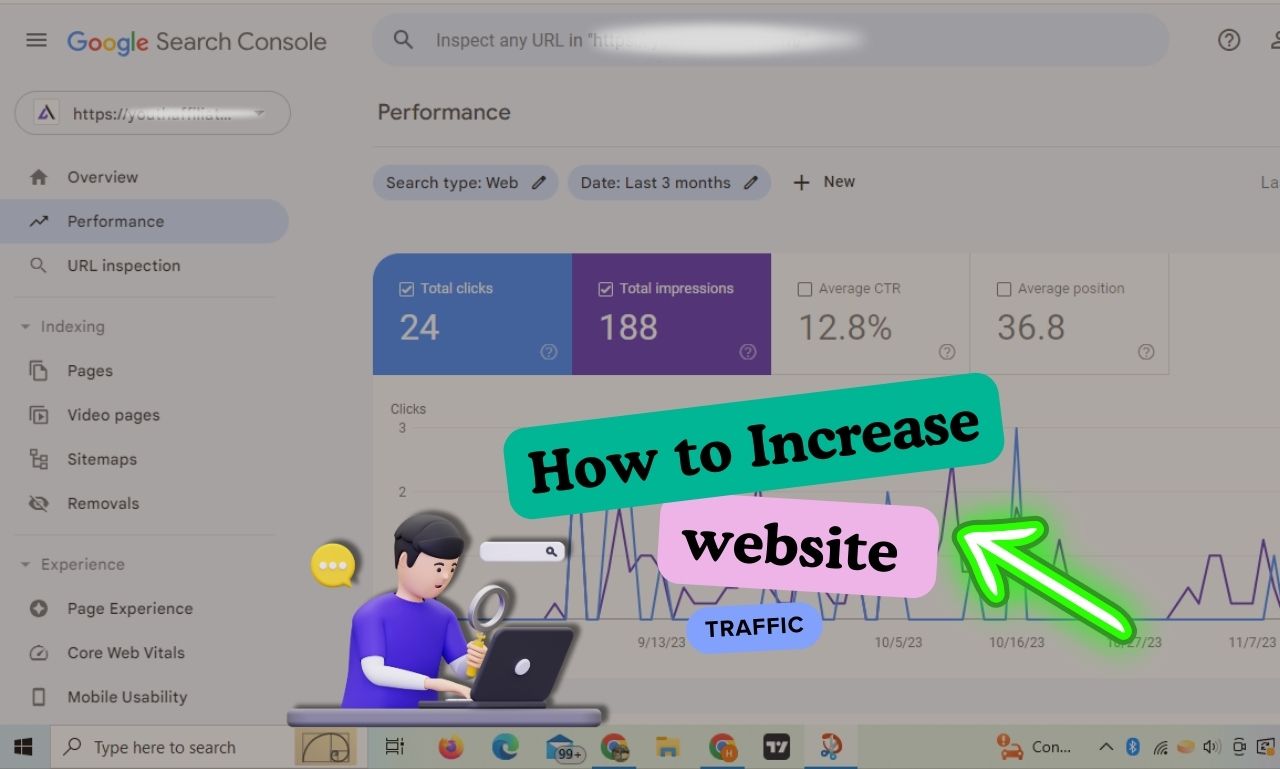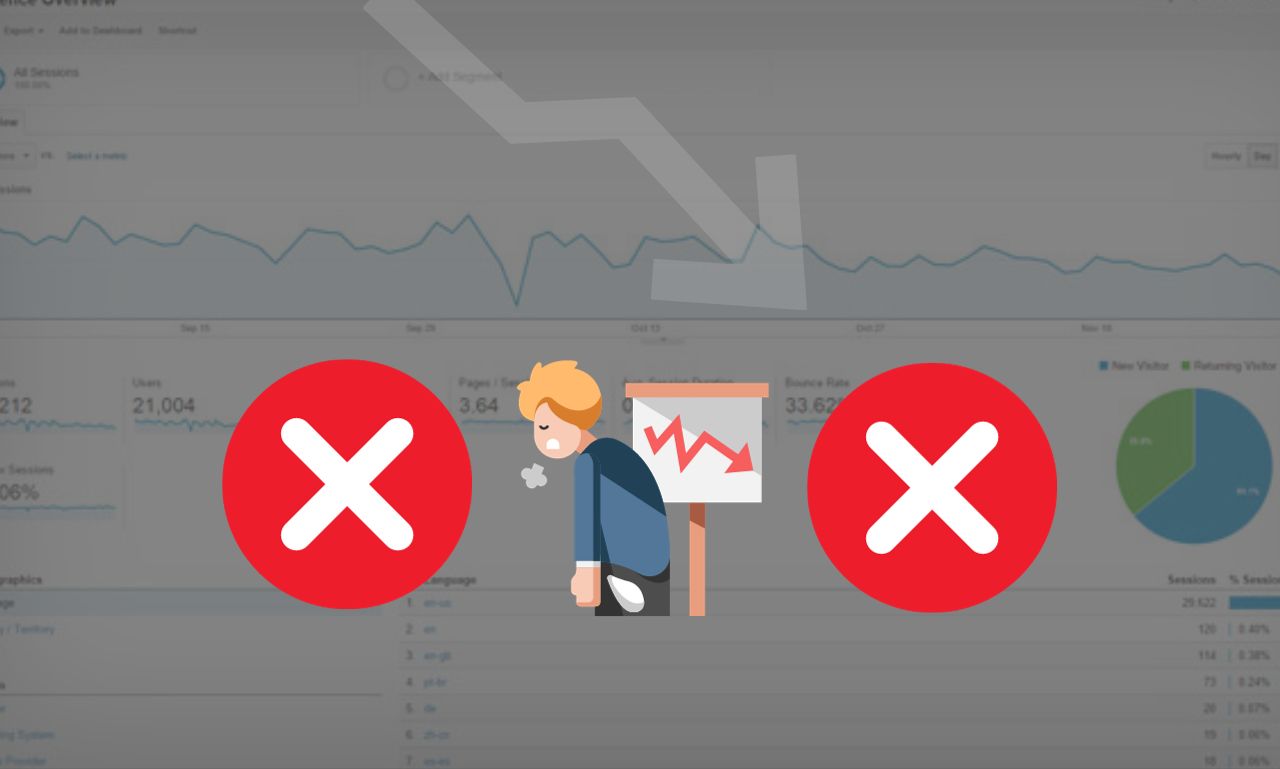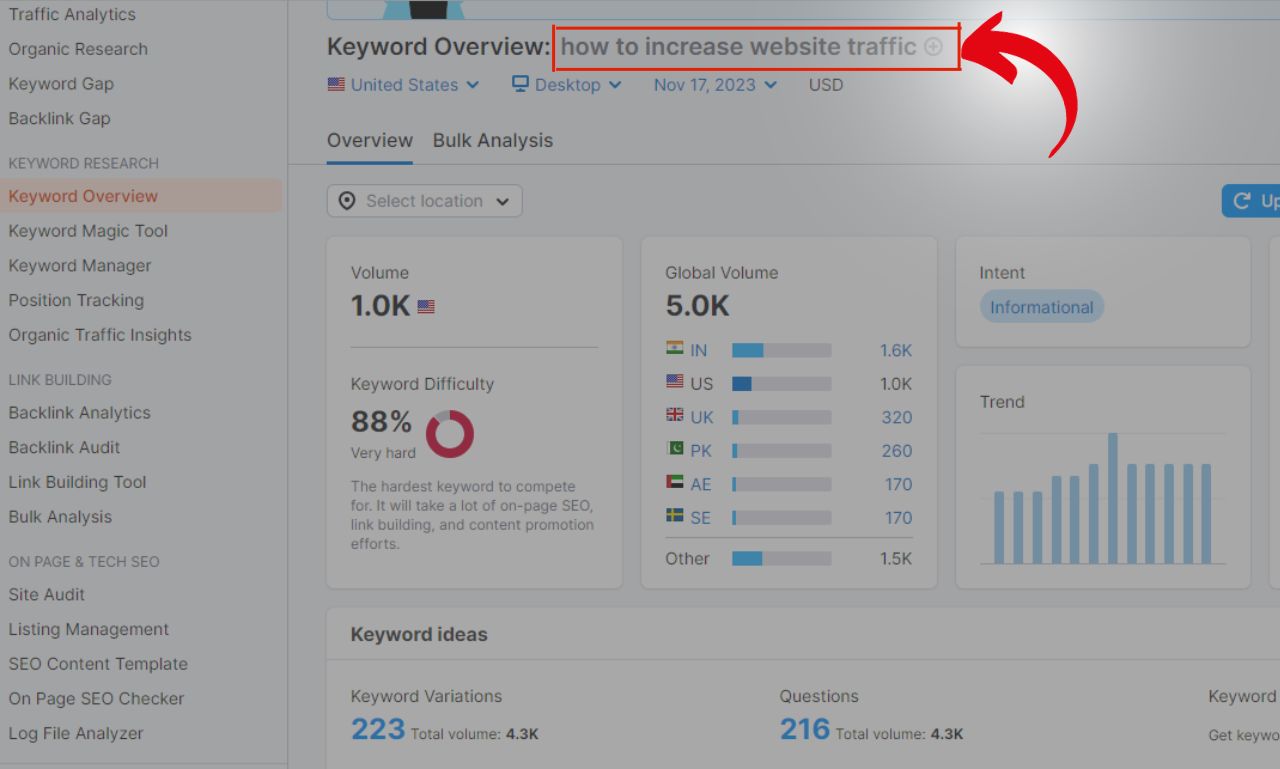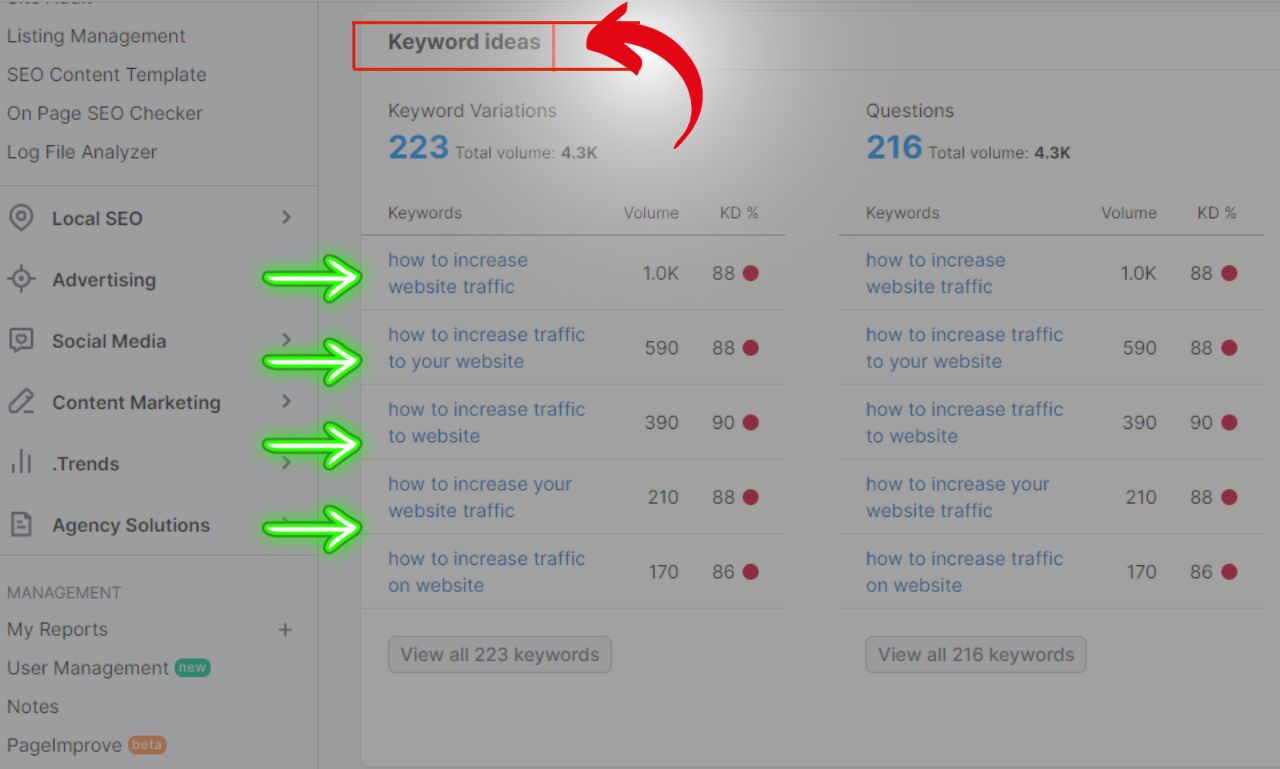Making sure people visit your website without paying for ads is tricky. In 2024, lots of people and businesses are having a hard time with it. Let’s find out why. There are a few reasons that make it tough.
Unlock the secrets to boosting your website’s organic traffic in 2024! Let’s find out why some websites have a hard time being successful.
It could be because they don’t get enough visitors from search engines.
Use the wrong words and have not-so-good content. Make the website difficult to use, or forget to tell people about it on social media.
Don’t have enough links to the site.

Boost Your Rankings: FREE Access to SEO, Backlink, and Website Audit Checklists!

Thank You For Sign-Up!
We have sent an email. Kindly verify your email address.
Table of Contents
Google's New Update Algorithm
Google’s new update algorithm, dubbed “Page Experience Update,” represents a significant shift in how the search engine ranks web pages.
This update prioritizes user experience metrics as key factors in determining search result rankings.
Rolled out in June 2021, the Page Experience Update aims to enhance the browsing experience for users by rewarding sites that offer exceptional user experiences.
A) Google's last update is nothing special
Google regularly updates its algorithms to make our online searches better. They always look for new ways to show us the best and most reliable information. The update in March 2024 is special because it deals with a lot of AI-created content appearing on the internet.
Now that generative AI is easy to use, There is a lot of information in the form of content on Google, but the information provided by people is not completely accurate.
While Google doesn’t stop people from using AI to make content, they still prefer and reward high-quality, well-written material.
b) Highlights
- Google’s latest Core Update, unveiled in March 2024, introduces significant algorithm adjustments aimed at enhancing the quality of search results and implementing fresh spam policies.
- The update seeks to cut down on poor-quality, copied content in search results by 40%.
- The new spam policies focus on tackling misuse of scaled content, abusing site reputation, and exploiting expired domains.
B) New Update
Page Experience Update: Google’s new algorithm update, rolled out in June 2021, prioritizes user experience as a ranking factor in search results.
Core Web Vitals: Central to the update are Core Web Vitals, which include loading performance (Largest Contentful Paint), interactivity (First Input Delay), and visual stability (Cumulative Layout Shift).
Mobile-friendliness: The update continues to emphasize the importance of mobile-friendliness, ensuring websites are optimized for viewing and interaction on mobile devices.
Safe browsing: Websites with security issues, such as malware or deceptive content, will be penalized in search rankings.
HTTPS security: Websites using HTTPS encryption are favored in search rankings, as they provide a secure connection for users.
Intrusive interstitials: Websites that display intrusive pop-ups or interstitials that hinder user experience may see a negative impact on their search rankings.
Tools for optimization: Google provides tools such as PageSpeed Insights and Search Console to help website owners identify and address issues affecting user experience and search rankings.
Continuous improvement: Website owners are encouraged to continually monitor and improve their sites’ performance in terms of Core Web Vitals and other user experience metrics to maintain or improve their search rankings.
Global impact: The update affects search results globally, aiming to deliver a better browsing experience for users worldwide.
Long-term strategy: Optimizing for user experience is becoming increasingly important for maintaining visibility in Google search results, as the algorithm continues to prioritize quality content and seamless browsing experiences.
Why Do Many People Struggle with SEO?❌❌❌
Website Organic Traffic Failure ❌

The heart of the matter lies in the failure to attract organic traffic. In a world inundated with content, standing out is no easy feat.
Understanding the algorithms that govern search engines and adapting your content to meet their criteria is crucial.
a) Poor SEO Practices: Search Engine Optimization (SEO) is crucial for organic traffic. a website shows up well when people search for things, we need to do some important stuff.
- First, we should use the right words that people often search for (that’s keyword research).
- Next, we need to fix things on each page of the website, like the title and short description (that’s on-page elements).
- Lastly, we must pay attention to any technical problems the website might have (that’s technical SEO issues). All of these things help the website do better in search results.
b) Low-Quality Content: The words and information on a website are super important for getting people to visit. If the words aren’t good, not related to what people want, or not helpful for the people who visit.
The website won’t show up high in search results.
Good content is like the boss that helps the website do well in search engines. Creating high-quality, engaging, and relevant content is essential for SEO success.
c) Lack of Regular Updates: Search engines favor websites that regularly update their content. If a site is static and doesn’t provide fresh information, search engines may rank it lower.
Regularly updating content through blog posts, articles, or other relevant updates can help improve organic visibility.
d) Ignoring Mobile Optimization: People are using phones and tablets to go online. Google and other search engines like websites that work well on these devices.
If a website doesn’t look good or work properly on phones, it might not show up high in search results.
That means fewer people might see the website, and it won’t get as many visitors. Making sure a website is good for mobile users is important for getting more people to check it out.
e) Ignoring Social Media: Social media can play a significant role in driving organic traffic. Sharing content on social platforms can increase visibility and attract visitors.
Ignoring social media as a part of the overall marketing strategy may result in missed opportunities for organic traffic.
f) Ineffective Link Building: Backlinks are crucial for SEO success. A website lacking quality backlinks from reputable sources may struggle to rank well in search results.
Building a diverse and high-quality backlink profile is essential for attracting organic traffic.
g) Slow Website Speed: Users and search engines prefer fast-loading websites. If a site takes too long to load, visitors may leave, and search engines may penalize it in rankings.
Optimizing website speed can improve the user experience and positively impact organic search performance.
h) Not Use Long-Tail Keywords: If we only use common words that many websites are using. It can be hard for our website to show up in search results. But if we use more specific and longer phrases that not many websites use (we call them long-tail keywords).
[It can help our website show up when people search for specific things. This way, our website can attract the right people who are interested in what we have to say.]
i) Failure to Adapt to Algorithm Changes: Search engines often change how they decide which websites to show. If we don’t keep up with these changes and adjust our strategies to be in line with them.
Our website might not get as many visitors as before.
It’s like keeping up with the latest rules to make sure our website stays popular.
j) Technical Issues: Issues such as broken links and crawl errors. Other technical issues can negatively impact a website’s SEO performance.
Monitoring and addressing technical issues is essential for maintaining and improving organic search rankings.
It’s like keeping up with the latest rules to make sure our website stays popular.
You Should Try These Tricks To Increase Website Organic Traffic.✅✅✅
1. Keyword Research ✅
A) Why is Keyword research important for getting traffic? ✅

Finding the right words to use (that’s keyword research) is super important for getting people to visit your website. It helps your website show up better in searches.
It’s like using the best words to make sure people can easily find and enjoy what you share on your website.
a) Enhances Search Engine Visibility: Keyword research is like finding the special words people type into search engines. If you use these words in your writing, it helps your website show up when people search for things.
This makes more people notice your website, and it’s important for getting visitors without paying for ads.
It’s like using the right words to make sure lots of people can find and enjoy what you share on your website.
b) Targets Relevant Audience: Knowing the special words related to what you talk about helps you make content that your audience likes.
When you write about things people are actively looking for. It brings the right audience to your website—people who are interested in what you have to say.
It’s like talking about the things your friends want to hear about, and that makes your website more interesting for them.
c) Optimizes Content for SEO: Search engines use special rules to figure out if what you wrote is useful for what people are looking for. When you use the right words.
It tells search engines that your writing is valuable and related to certain topics.
This helps your content show up higher in search results. It’s like using the right words to tell search engines that your writing is really good and helpful!
d) Improves Click-Through Rates (CTRs): Search engines follow special rules to see if what you wrote is helpful for what people want. When you use the right words, it tells search engines that your writing is valuable and connected to specific topics.
This makes your content appear higher in search results.
e) Guides Content Creation: Finding the right words (that’s keyword research) helps you make content that your audience likes. It lets you know how people talk about things and what they find interesting.
You can write stuff that directly answers what people are curious about, making your content more interesting and helpful.
f) Stay Competitive: In the big online world, being smart about finding the right words (that’s keyword research) can help you stand out. If you find words that not many others are using. If you discover new trends.
It gives you a better chance of showing up high in the search results.
This way, you can get more people to visit your website, and your competition might not even notice!
g) Adapts to User Behavior: User search behavior evolves. By regularly conducting keyword research, you stay attuned to shifts in user preferences and emerging trends.
This flexibility allows you to constantly refine your content strategy, ensuring it remains aligned with current user interests.
h) Enhances Paid Advertising Campaigns: If you’re doing paid advertising, it’s super important to be smart about finding the right words (that’s keyword research).
This helps you pick the best and most affordable words for your ads.
It makes sure you use your money wisely so that your ads have a big impact and you get the most out of what you spend.
i) Facilitates Long-Term Growth: Choosing the right words (that’s your keyword strategy) is like building a strong foundation for your online growth. When you keep making stuff that your audience likes, you become an expert in your topic.
This makes more and more people interested in what you share and over time.
You’ll have lots of visitors coming to your website without even having to do anything extra.
B) How to do the Best keyword research? ✅

a) Understand Your Niche: Begin by deeply understanding your niche or industry. Identify the main topics, trends, and specific terms relevant to your business.
b) Utilize Keyword Research Tools: Leverage keyword research tools such as Google Keyword Planner, SEMrush, or Ahrefs.
These tools provide valuable insights into search volumes, competition, and related keywords.
c) Long-Tail Keyword Exploration: Expand your focus to long-tail keywords – more specific, detailed phrases that align with user intent. Long-tail keywords often have less competition and can attract highly targeted traffic.
d) Competitor Analysis: Analyze the keywords that your competitors are targeting. This can unveil valuable insights and identify opportunities or gaps in your keyword strategy.
e) Consider Searcher Intent: Understand the intent behind user searches. Are they looking for information, products, or specific services?
Tailor your keyword selection to align with user intent for more effective targeting.
f) Evaluate Search Volume and Keyword Difficulty (KD): Strike a balance between search volume and competition. Optimize for keywords with a reasonable search volume and achievable competition level to optimize your chances of ranking well.
g) Focus on Relevant Topics: Group keywords into relevant topics or themes. This helps in organizing your content strategy and ensures that your website covers a breadth of related keywords.
h) Regularly Update and Refine: Keyword trends evolve, so it’s essential to update and refine your keyword strategy regularly. Stay informed about industry changes and adapt your content to shifting user preferences.
i) Utilize Google’s Autocomplete and Related Searches: Take advantage of Google’s autocomplete feature and related searches at the bottom of the search results page.
These can provide additional keyword ideas and insights into user queries.
j) Semantic SEO: Embrace semantic SEO by Separating variations and synonyms of your target keywords. This helps search engines understand the context of your content better.
k) Create High-Quality Content: Build content around your selected keywords that are valuable, informative, and engaging. High-quality content not only attracts traffic but also encourages user engagement and loyalty.
l) Stay Informed About Industry Trends: Keep abreast of industry trends and changes in user behavior. This ensures that your keyword strategy remains relevant and adaptable to the dynamic online landscape.
2. Content Quality ✅
A) How does Low-Quality impact Website Traffic? ✅

When the stuff on a website isn’t good, it can cause big problems for how many people visit. Let’s see how having not-so-great content can hurt a website and make it harder to do well online:
a) Poor Search Engine Rankings: When the things on a website aren’t good, search engines don’t think they’re important or helpful. So, the website goes down in the list when people search for things.
This means fewer people see the website because it’s not easy to find.
It’s like the website becomes a bit invisible, and not many people visit it through searches.
b) Negative Impact on User Experience: Subpar content hampers the overall user experience. Whether due to outdated information, poor writing, or lack of relevance, low-quality content frustrates visitors.
If a website is not enjoyable to use, people might not want to look at other pages on it. They might not want to come back.
This makes it less likely for people to visit the website again. It’s like when you don’t have fun playing a game, you probably won’t want to play it again.
c) Reduced User Engagement: Low-quality content cannot captivate and engage users. Without compelling material, visitors are less likely to spend time interacting with the content, resulting in decreased engagement metrics.
d) Damaged Reputation and Trust: Websites with low-quality content risk damaging their online reputation and eroding trust.
Users are increasingly discerning, and encountering inaccurate or unreliable information diminishes confidence in the website.
e) Limited Social Media Traction: If the things on a website aren’t good, not many people want to share them on social media. People like to share stuff that’s interesting or helpful.
Suppose the website doesn’t get shared on social media. Not many new visitors come to the website.
f) Ineffective Backlink Generation: If a website doesn’t have good stuff, other websites might not want to link to it. Links from other websites are important for how search engines decide which websites are important.
g) Limited Repeat Traffic: A website with low-quality content struggles to establish a loyal audience. Without consistently delivering value, users are unlikely to return for subsequent visits. The absence of repeat traffic diminishes the opportunity to build a community and foster ongoing engagement.
B) How can we write the best content for our website? ✅
Making really good content for your website is like creating something special. You need to pay close attention to all the details, do some research, and understand the people you want to share it with.
- Understand Your Audience
- Keyword Research
- Create an Outline
- Start with a Compelling Introduction
- Provide Valuable Information
- Use Engaging Language
- Optimize for Readability
- Optimize for SEO
- Mobile-Friendly Design (IMP)
- Share on Social Media
- Feedback
Article: Top Tips For Content Creator
3. SEO Optimization ✅
A) Advanced SEO strategies ✅

Making sure people can find your website on the internet has become more advanced than before. In 2024, using advanced strategies for SEO is important. It’s not just about the basics, it’s about using smart and clever techniques to do even better than other websites.
Let’s take a look at these advanced strategies for making sure your website shows up high when people search for things.
Technical SEO Audits: Conduct regular audits to identify and address technical issues that may hinder search engine crawling and indexing. Pay attention to factors like site speed, mobile-friendliness, structured data implementation, and crawlability. Semrush and Ahref are the best tools for site audits.
Semantic SEO: Focus on understanding user intent and creating content that satisfies search queries comprehensively. Utilize semantic keywords and structured data to improve relevance and context for search engines.
Content Clusters: Organize your content into thematic clusters around core topics or keywords. Interlinking related content within these clusters helps search engines understand the depth and breadth of your expertise in a particular subject area.
Natural Language Processing (NLP): Create content that answers questions concisely and naturally, aligning with how users speak and search.
- Local SEO Strategies: If your business has a physical location or serves specific geographic areas, implement local SEO tactics to improve visibility in local search results.
E-A-T Optimization: Enhance Expertise, Authoritativeness, and Trustworthiness (E-A-T) signals by showcasing expertise, establishing authority through backlinks and social proof, and building trust through transparent and credible content.
- Monitor and Adapt: Continuously monitor performance metrics, algorithm updates, and industry trends to refine your SEO strategies.
4. User Experience ✅

User experience is not just about aesthetics; it’s about creating a seamless journey for your visitors. 1st Slow-loading pages. 2nd Confusing navigation. 3rd Lack of mobile optimization can contribute to a high bounce rate, adversely affecting your organic traffic.
- Responsive Design

- Page Loading Speed

- Clear and Concise Content

- Use Images and Videos Relevant to your content

- Consistent Branding

- Feedback Mechanisms

- Mobile Optimization

- A/B Testing and Iteration

- Security and Trust

5. Social Media Promotion ✅

Social media isn’t just a platform for connection; it’s a powerful tool for driving organic traffic. Consistent, strategic promotion across platforms can significantly impact your website’s visibility and attract a broader audience.
a) Audience Engagement and Interaction: Social media promotion fosters direct interaction with the target audience. Through likes, comments, shares, and direct messages, businesses can engage in real-time conversations with their audience.
This interaction builds relationships, loyalty, and a sense of community.
b) Driving Website Traffic: Social media serves as a powerful traffic driver. Businesses can redirect social media users to their official sites by sharing links to website content.
This not only increases website traffic but also exposes users to additional products, services, or valuable information.
c) Content Buildup: Social media platforms act as amplifiers for content. When users find content interesting or valuable, they are likely to share it with their networks.
This organic sharing expands the content’s reach aggressively, contributing to a broader audience exposure.
d) Real-Time Updates and Announcements: Social media enables real-time communication. Businesses can leverage this nearness to share updates, announcements, or time-sensitive information with their audience promptly.
This real-time connection fosters transparency and keeps the audience informed.
e) Community Building: Social media is like a big playground where people can come together. Businesses can make special places and like groups or pages.
People who are interested in the same things can talk, share stories, and get to know the brand better.
It’s like having a fun club where everyone who likes the same stuff can hang out and be friends with the brand.
f) Social Proof and Testimonials: When people say good things about a brand on social media, like leaving reviews or sharing their experiences.
It shows that the brand is trustworthy. It makes the brand look even better and more real.
6. Link Building ✅

A) The Power of Link-building ✅
Getting other websites to put links to your website is an important part of making sure search engines like your stuff.
This practice plays a pivotal role in enhancing a website’s authority, visibility, and overall performance in search engine rankings.
a) Building Authority and Trust: Link building contributes to the establishment of authority and trustworthiness for a website.
Search engines think of links as thumbs-ups. When really good websites link to your site, it shows that your site is trustworthy and important. It’s like having cool friends say, “This is a great website!”
b) Search Engine Rankings: Search engines consider the quantity and quality of backlinks when determining a website’s rankings. That’s why they show up higher when you look for things on the internet.
c) Increased Organic Traffic: A well-implemented link-building strategy can result in increased organic traffic.
When a website goes up in the search list, more people can see it when they’re looking for similar things. This makes it more likely that people will click on it.
d) Referral Traffic: Links do more than just make a website show up higher in searches. They act like paths that bring people from other websites to yours.
When someone clicks on a link to visit your site, it means new people are checking out what you have to share.
e) Change of Backlink Portfolio: It’s important to have a variety of different good websites linking to yours. This mix tells search engines that your stuff is important in different ways and fits well into various topics.
This helps your online presence be strong and well-rounded.
f) Strategic Anchor Text Optimization: When you make links to your website, use special words (we call it anchor text) that fit and talk about what your content is about.
This helps people and search engines understand what they’ll find when they click on the link. Doing this makes your website do better in searches (that’s improved SEO).
g) Outreach and Relationship Building: Talking to other websites in your area or interest can help you get important links. If you make friends with people who are well-known, like influencers or bloggers.
It can open up chances to work together and create links that help both of you.
h) Social Proof and Validation: Backlinks serve as a form of social proof and validation. When users encounter links to your content on reputable sites, it reinforces the credibility and reliability of your information, potentially influencing their perception positively.
i) Competitive Advantage: In competitive industries, an effective link-building strategy can provide a distinct competitive advantage. Outperforming competitors in terms of quality. Quantity of backlinks can lead to higher search rankings and increased market share.
j) Flexibility to Algorithm Changes: Search engine algorithms evolve, and link-building strategies must adapt accordingly. Staying informed about algorithm updates and adjusting link-building tactics ensures continued effectiveness and compliance with search engine guidelines.
7. Conclusion ✅
In the world of online marketing, getting more people to visit your website is like solving a puzzle with many pieces. You can do it by fixing problems with organic traffic and making your website better for search engines.
- Make good content.
- Choose the right words.
- Make your website easy to use.
- Use social media.
- Get good links.
When you do all these things, more people will see and visit your website without having to pay for ads.
FAQs ✅
Q.1 How often should I update my keyword strategy?
Regular updates, at least quarterly, ensure your keyword strategy aligns with current search trends.
Q2. Is social media promotion essential for SEO?
Absolutely! Social signals contribute to search engine algorithms, impacting your website’s organic ranking.
Q3. Can we use machines to build links automatically?
While some tools assist in the process, manual, thoughtful link-building yields better results.
Q4. Should I prioritize desktop or mobile user experience?
Both are crucial. Google classifies mobile-friendly websites, but desktop users should also have a seamless experience.
Q5. Can we make not-so-good content better?
Yes, with strategic improvements. Update and optimize existing content to meet current standards.
Q6. Is organic traffic failure permanent?
Nope. If we keep working hard and making smart changes, we can bring back more people visiting naturally.
To gain insights into SEO strategies, simply click the 'Sign Up' button!!!
Just Sign Up and get FREE Super 3 CHECKLISTS
By signing up, you'll receive a complimentary premium eBook 'Dominating Google SEO,' helping you boost your website's traffic.
Thank You For Sign-Up!
We have sent an email. Kindly verify your email address.

Price $49 FREE⏱
- 14+ SEO Checklist
- 27+ Backlink Ckecklist
- 45+ Website Audit Checklist

4 thoughts on “New to Digital Marketing? Here’s How to Begin in 2024”
Nice information,,,👌
Thank you for appreciate 😊
nice,,
Thank you,,,, 😊
Comments are closed.